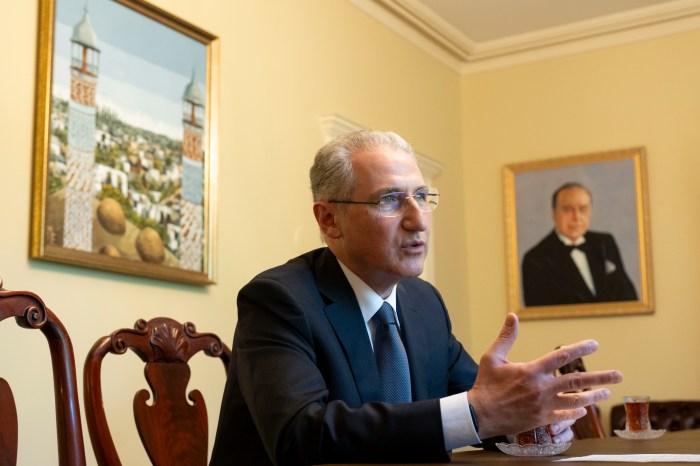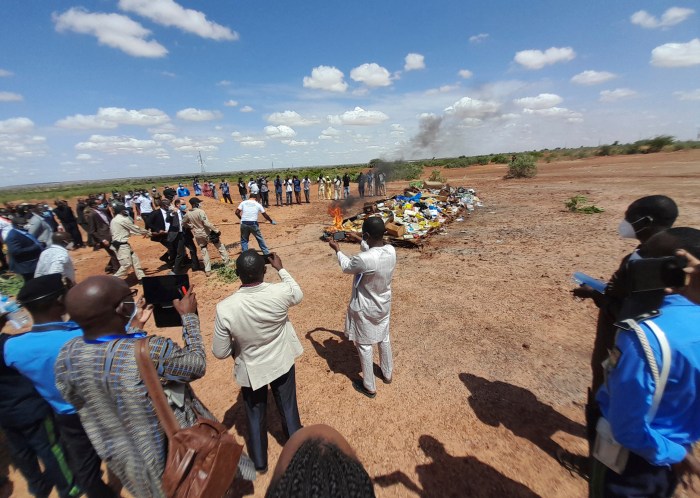By Christian Shepherd and Thomas Suen
JIUZHAIGOU, China (Reuters) – Businesses near the epicenter of an earthquake that struck an ethnically Tibetan mountainous region in southwest China fear the disaster will cripple tourism, their main source of income.
Damage to the Jiuzhai Valley Scenic Area of Sichuan province may cause some of the hotels, restaurants, shops and stalls that serve the UNESCO-listed site to lose months – if not years – of income, leaving many jobless, workers told Reuters.
Tuesday’s 7-magnitude quake killed 20 people and injured around 500, many of them in landslides in an area often hit by tremors. It also damaged lakes and waterfalls, according to state media.
The damage does not compare with the Sichuan quake of May 2008 which toppled buildings and killed almost 70,000 people. Initial government estimates at the time put the cost to the province at more than $7 billion in lost tourism.
But more than a dozen villagers in and around the Jiuzhai Valley Scenic Area told Reuters they feared for their future.
“The whole of Ngawa Prefecture relies on the scenic area for economic income. People from all districts come here to work. A whole generation could lose job opportunities,” said Renda Caili, a Tibetan man who runs a guesthouse.
Images shared online and confirmed by residents in touch with people inside the site show some of the brightly colored pools filled with mud, while some of the rolling waterfalls that connect them have partially collapsed.
Authorities have blocked international journalists from accessing the site, which state media said was visited 7 million times in 2016.
A Sichuan government spokesman said it could not yet make any estimates of the economic damage.
Few of the buildings in Zhangza Town, the entrance to the valley where visitors typically stay, appeared to have suffered severe damage when Reuters visited on Thursday, though locals said they worried there could still be danger of collapse.
A Tibetan woman with a four-year-old daughter and a 12-year-old son said that their house partially collapsed.
“We don’t dare go back. It’s too dangerous,” she said, declining to give her name as she said the quake was a sensitive issue for the authorities.
Her family’s income was her greatest concern, she said: “My husband worked in a five-star hotel up near the epicenter. No one knows when it is going to reopen.”
The glass and metal frame of the entrance to the InterContinental Resort Jiuzhai Paradise, close to the epicenter, was warped and broken when Reuters visited on Thursday.
Authorities say the majority of the estimated 60,000 tourists had been evacuated by bus or ambulance, but residents say no transport has been made available for them.
“There were no buses provided and we have nowhere to live up there now, so we are walking home,” a worker from a hotel said, declining to be identified, as he rushed down the road with belongings towards Jiuzhaigou from about 10 km away.
The route into the town from the West was blocked by landslides. Boulders dislodged from the steep mountainside by regular aftershocks continued to crash on to the road on Thursday.
A business owner surnamed Zhao told Reuters he expected it to take two years before his catering business, which serves thousands per day in peak season, returned to full operation.
“Fortunately this time there have been very few deaths. It is nothing like as bad as Wenchuan,” he said, referring to the 2008 quake in central Sichuan which he said he felt in Jiuzhaigou.
Many of the deaths then were caused by the collapse of old buildings, though some new school buildings collapsed because of a lack of reinforced concrete. Most of the buildings in Zhangza were relatively new, built in the domestic tourism industry boom under much tougher quality and safety regulations.
“This area is a natural wonder – the United Nations has said so,” Zhao said. “Of course the tourists will come back.”
(Reporting by Christian Shepherd and Thomas Suen; Editing by Nick Macfie)


















